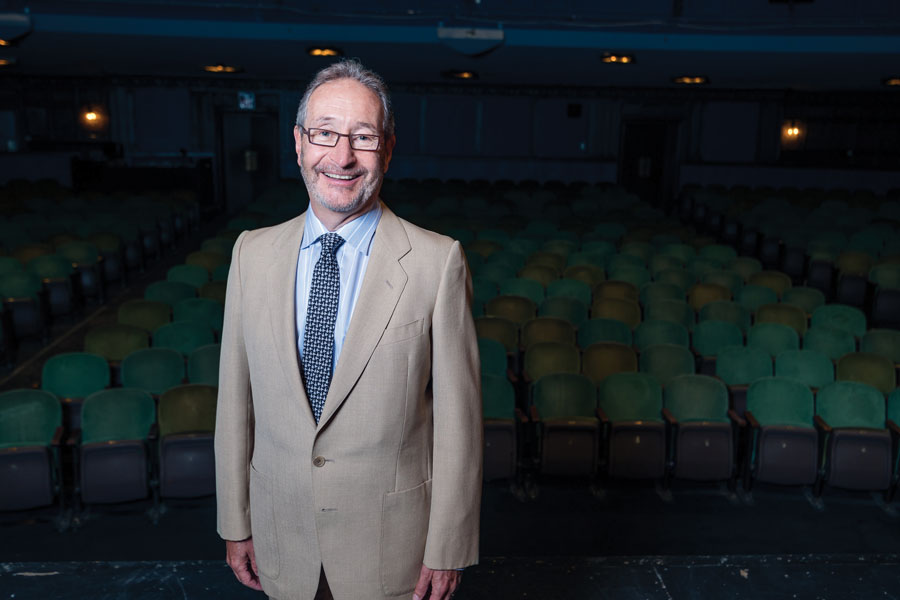In his 37 years as managing director of the Huntington Theatre Company, Michael Maso has grappled with his fair share of head-spinning crises. But none was more nerve-wracking than the moment in 2015 when he was informed that Boston University, the Huntington’s longtime patron and owner of its 890-seat mainstage, planned to sell the venue and adjoining buildings on the open market.
The news was dire, but Maso quickly sprang into action. “The advantages of being at a place as long as I’ve been here are that we have relationships that can be called upon—there is trust that we built,” he says. “This was our time to rally our community. And it was clear very quickly that we were going to get extraordinary support from our colleagues, from our audiences, and from city government, and they gave us a path forward.”
The mayor’s office helped broker a deal in 2016 with the private developer who purchased the property. It gave the Huntington control of the theatre, which will undergo a major renovation, as well as a new amenities wing (on the first two floors of what will be an adjacent 32-story residential tower) to serve the Huntington’s entrance lobby with a café, bar, and flexible gathering space for community events and performances. Maso envisions it as a “living room” for the neighborhood. “The more activity we have in the building, the more it becomes central to the community,” he says.
That’s exactly what has happened at the Calderwood Pavilion, the theatre complex in Boston’s South End neighborhood that Maso spearheaded, which the Huntington built and continues to run with Boston Center for the Arts. Opened in 2004 and boasting two stages and flexible rehearsal/performance spaces, the complex has become what Maso calls “the beating heart of the theatre community,” used by companies across the city’s theatrical landscape.
Peter DuBois, the Huntington’s artistic director for the past 11 years, praises Maso for navigating the theatre through the biggest inflection point in its history, and for his ability to change and grow. “He’s very open to things operating differently than how they used to be done,” says DuBois. “But he’s smart about change—he doesn’t like to rush anything. He’s not just a survivor. He’s really thriving right now.”
Maso says his job is “to try to figure out ways to say yes to artists and to help them realize their dreams.” He remembers when former artistic director Nicholas Martin wanted to inaugurate his tenure with Sidney Kingsley’s sprawling 1935 play Dead End, transforming the orchestra pit into a pool of water to represent the East River. It “almost killed us,” Maso says, “but it was an exhilarating experience.”
The most gratifying part of the job, he says, is seeing artistic relationships deepen over time. He cites the theatre’s playwright-in-residence Melinda Lopez (Sonia Flew, Becoming Cuba), Boston-based writers such as Kirsten Greenidge (The Luck of the Irish; Our Daughters, Like Pillars) and Lila Rose Kaplan (We All Fall Down), and Emmy- and Tony-winning actor Billy Porter, who’s directed three times at the Huntington since 2015, including this season’s hit, Dan McCabe’s The Purists. “I still love watching artists work, watching shows progress and come together,” he says, “and having access to the room when great things are being created.”
Sure, Maso may have endured a few sleepless nights in his time, but his approach has always been to focus on solving the problem that’s right in front of him. “Worrying is natural, but I don’t think it’s productive,” he says. “What’s productive is figuring out the next step. Some days it’s just, what are you going to do tomorrow that’s going to put you in a better place than you are today?”


